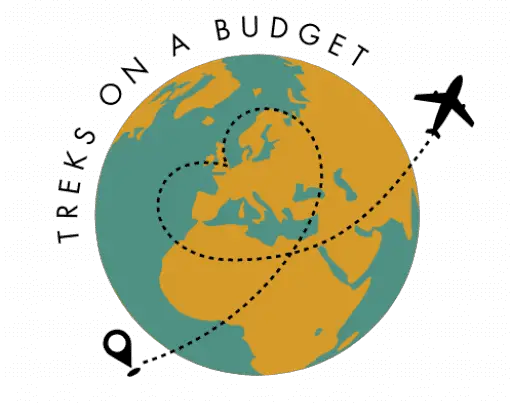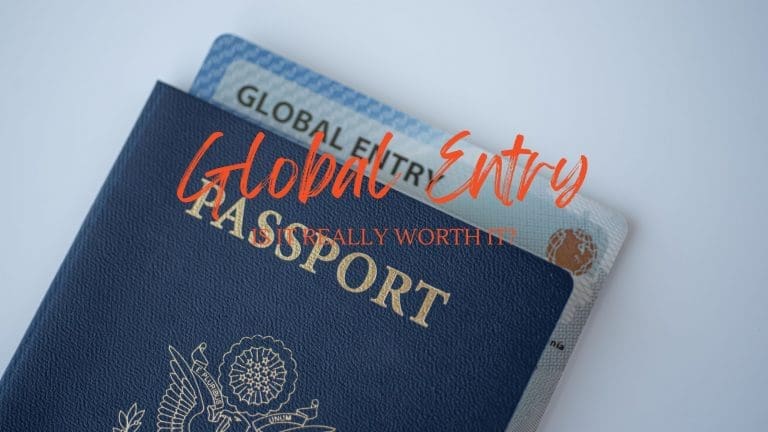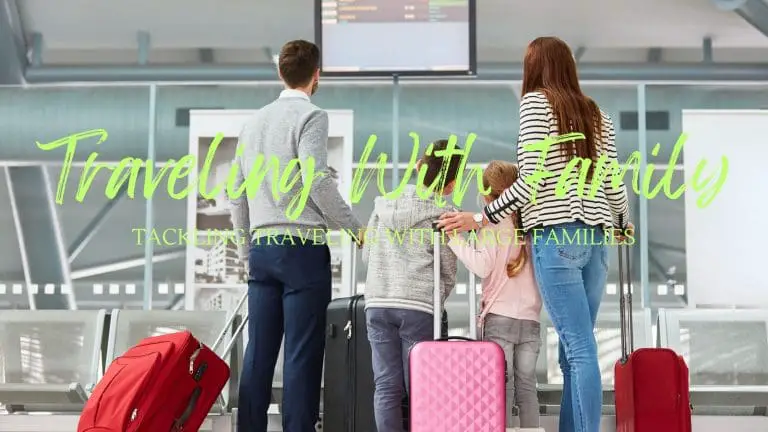Travel Myths Debunked: The Realities of Globetrotting Unveiled
We’re often haunted by travel myths that dim our wanderlust and keep us from exploring the world. 92% of Americans say traveling is nerve-racking. To clear the fog and prep our minds for worry-free adventures, it’s time to turn these myths on their head with evidence-based insights. These travel myths debunked show there’s no right or wrong way to travel—it’s your unique desires and dreams that should take the lead.
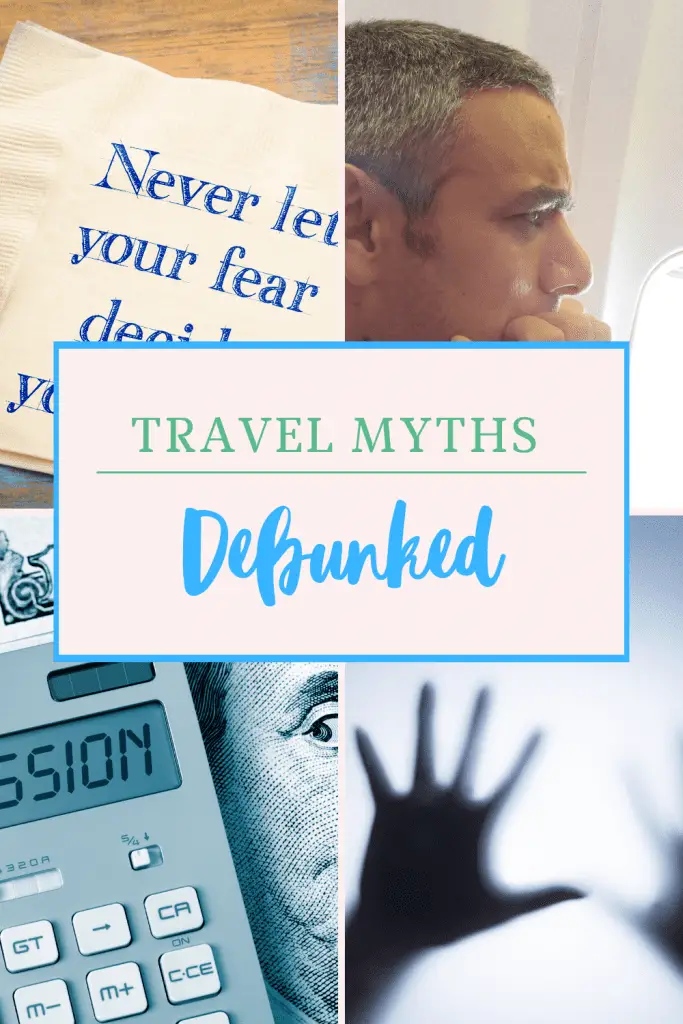
Table of contents
Section 1: Uncovering the Truth Behind Popular Travel Myths now Debunked
Myth 1: Over-preparation is Essential
Common belief: You must have your entire trip scheduled before departure to avoid mishaps.
Travel Myth Debunked: Being prepared is advisable, but excessive planning can hinder spontaneous discoveries that add magic to your travels. In fact, 92% of Americans believe travel is nerve-wracking due to this over-preparation anxiety. Remaining flexible often leads to serendipitous experiences one cannot plan for.
Myth 2: Specialized Gear is Mandatory
Common belief: A successful trip requires the latest travel gadgets and gear.
Travel Myth Debunked: Unless you’re tackling specific activities like mountain climbing, generic travel needs little more than essentials. Carry what comforts you, and remember, locals manage daily life without those gadgets, so you probably can too.
Myth 3: Visa Procedures are Overwhelmingly Difficult
Common belief: Obtaining visas is a complex and difficult process that often leads to rejection.
Travel Myth Debunked: While it’s crucial to understand visa requirements, remember that most applications that are well-prepared and timely submitted are accepted. A study by the U.S. Travel Association highlighted that misinformation about visa processes often undermines people’s desire to travel.
Myth 4: Longer Trips are Always More Fulfilling
Common belief: To truly experience a destination, you need to spend an extensive amount of time there.
Travel Myth Debunked: Even short getaways can be incredibly rewarding. It’s the quality of the experiences, not the quantity of days, that makes a trip unforgettable. Short trips can also be less stressful and more manageable financially.
Myth 5: Travel is Only for the Young and Single
Common belief: Traveling is a luxury best enjoyed by young, single people without the burden of family responsibilities.
Travel Myth Debunked: Travel is a universal pleasure that can be tailored to any age and life stage. Family trips, romantic getaways, and even solo trips for older adventurers can provide enriching experiences that cater to different interests and needs.
Myth 6: Exotic Locations Offer the Best Travel Experiences
Common belief: To have a worthwhile vacation, you must visit far-off, exotic locations.
Travel Myth Debunked: There’s beauty and adventure to be found in all corners of the world, including closer to home. Often, lesser-known destinations offer unique experiences without the crowds, allowing for a deeper connection with the culture and environment.
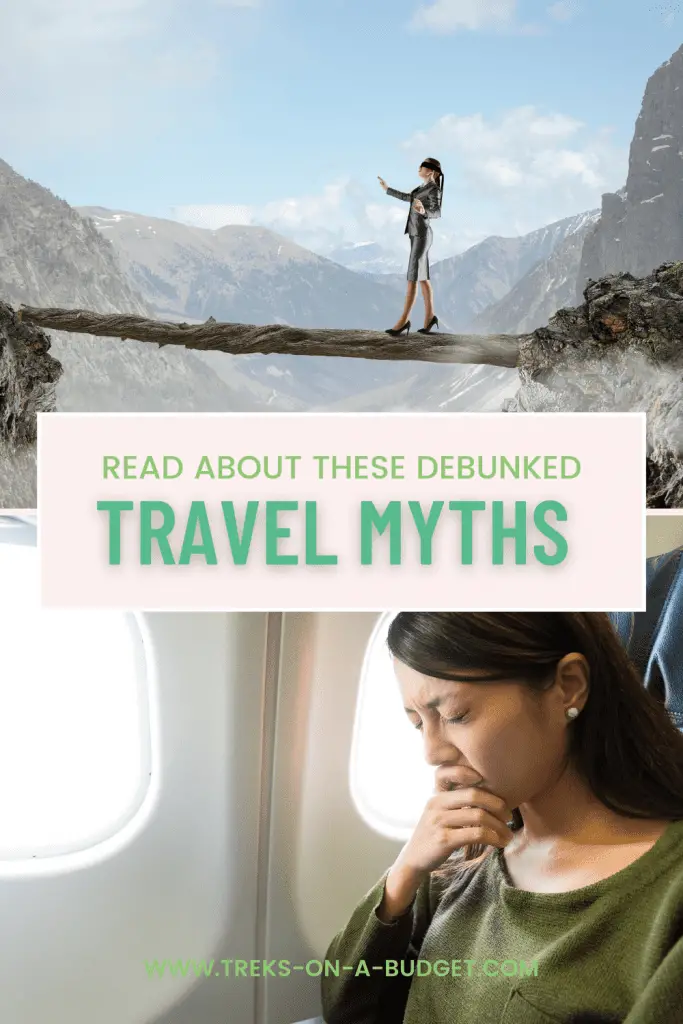
Section 2: Exploring the Impact of Travel Myths on Planning and Experiences
Insight: Believing in misconceptions about the difficulty, safety, or worth of travel can lead to missed opportunities. From solo travelers finding rewarding experiences to travelers discovering that sticking to a budget doesn’t diminish the joy of new horizons shows that these myths only serve as limitations that we set upon ourselves.
Insight: Another common fallacy is the belief that traveling alone is inherently dangerous, especially for women. This myth can deter many from experiencing the enriching personal growth that comes from solo travel. In reality, proper planning, awareness, and following local advice can ensure safety for solo travelers. Statistics from the Solo Travel Society show that solo trips are on the rise, with a significant percentage of women undertaking them confidently and safely. This shift reflects a broader understanding of the importance of personal development and cultural immersion that solo journeys can offer. Solo travel not only fosters independence but also allows for a deeply personal connection to the destinations visited, making it an invaluable experience for many.
Section 3: Essential Trip Planning Advice for Nervous Travelers
Advice: For those feeling apprehensive about traveling, beginning with thorough planning can significantly ease concerns. Start by choosing destinations well-regarded for their hospitality and safety. Before departure, invest time in research. Learn about the local customs, laws, and safety advice, and plan your accommodations and travel routes meticulously.
Advice: Equally important is staying connected. Share your itinerary with friends or family and regularly update them about your whereabouts. This not only ensures your safety but also provides a sense of security. Furthermore, consider traveling with a reputable tour group if the idea of solo travel feels overwhelming. These groups offer the camaraderie of fellow travelers and the guidance of experienced leaders, which can be very reassuring.
Advice: Lastly, remember to trust your instincts. If a situation doesn’t feel right, it’s okay to step back and reassess. Your comfort and safety are paramount. With careful planning and an open mind, the world is full of incredible destinations waiting to be explored, each offering its own unique experiences and lessons.
Section 4: Latest Trends and Updated Information in the Travel Industry
The travel landscape continually evolves, defying stagnant myths and showcasing increased accessibility and safety. For instance, the World Tourism Organization’s growth in global tourist arrivals demonstrates the expansiveness of modern travel, underscoring the debunking of myths surrounding exclusivity in exploration.
Digital nomadism is another trend revolutionizing the concept of travel and work. The proliferation of remote jobs and the availability of reliable internet across the globe have made it feasible for individuals to blend work with travel, challenging the traditional notion that careers are hindered by frequent travel. This lifestyle emphasizes the possibility of maintaining a professional trajectory while indulging in the desire to explore different cultures and geographies. Digital nomadism not only supports the disproof of travel-related myths but also promotes a balance between productivity and personal fulfillment. With co-working spaces and digital nomad communities flourishing worldwide, the support network for such a lifestyle is stronger than ever, making it an increasingly popular choice among professionals seeking flexibility and adventure.
Section 5: Addressing FAQs on Travel Myths
Q: Is it true that all travel is dangerous?
A: Similar to home, travel comes with risks managed through common sense. Awareness and preparation are key, as evidenced by the survey from Booking.com revealing the number of women confidently engaging in solo trips.
Q: Can’t travel indeed be too expensive?
A: With strategic planning and prioritizing experiences, travel can fit various budgets. The CreditDonkey report illustrates that the joy of travel is within reach for many.
Q: Shouldn’t travel be primarily for the younger generations?
A: Travel is timeless and ageless, with each life stage offering unique perspectives and desires for exploration.
Q: Do I need to speak multiple languages to travel comfortably?
A: While knowing the local language can enhance your travel experience, it’s not a necessity. Many travelers use translation apps and find that English is commonly spoken in tourist areas. Additionally, gestures and visual aids can go a long way in communication.
Q: Is it safer to travel to popular destinations only?
A: Safety can vary widely and is not necessarily determined by a destination’s popularity. It’s important to research and prepare for any location you plan to visit. Many lesser-known destinations offer enriching experiences and maintain high safety standards for tourists.
Q: Are travel insurance and vaccinations just added expenses?
A: Travel insurance and vaccinations are investments in your health and safety. Insurance can protect against unforeseen events, and vaccinations can prevent serious illnesses. Both are considered prudent steps for responsible travel.
Conclusion
Travel myths can ensnare us in webs of falsehood, stalling potential voyages of discovery. Detach yourself from these myths, and chart your own course. Dare to venture beyond the beaten path, understanding that travel is a personal endeavor, defined not by myths and hearsay, but by your aspirations and heart’s compass.
Happy Travels
